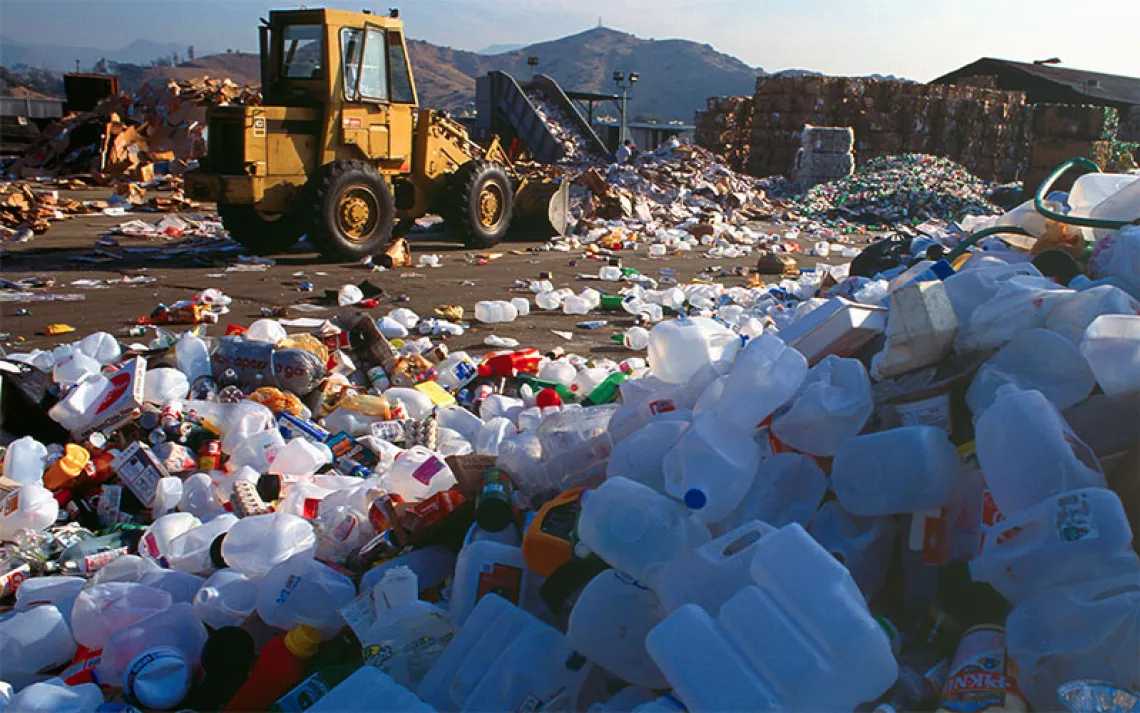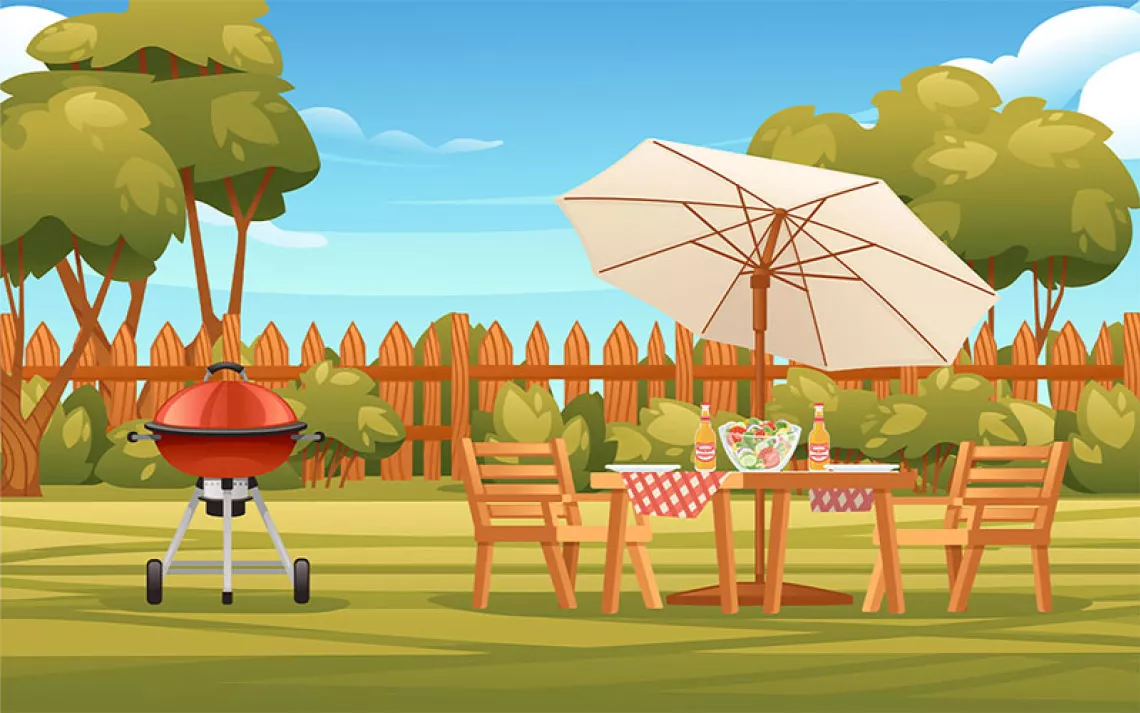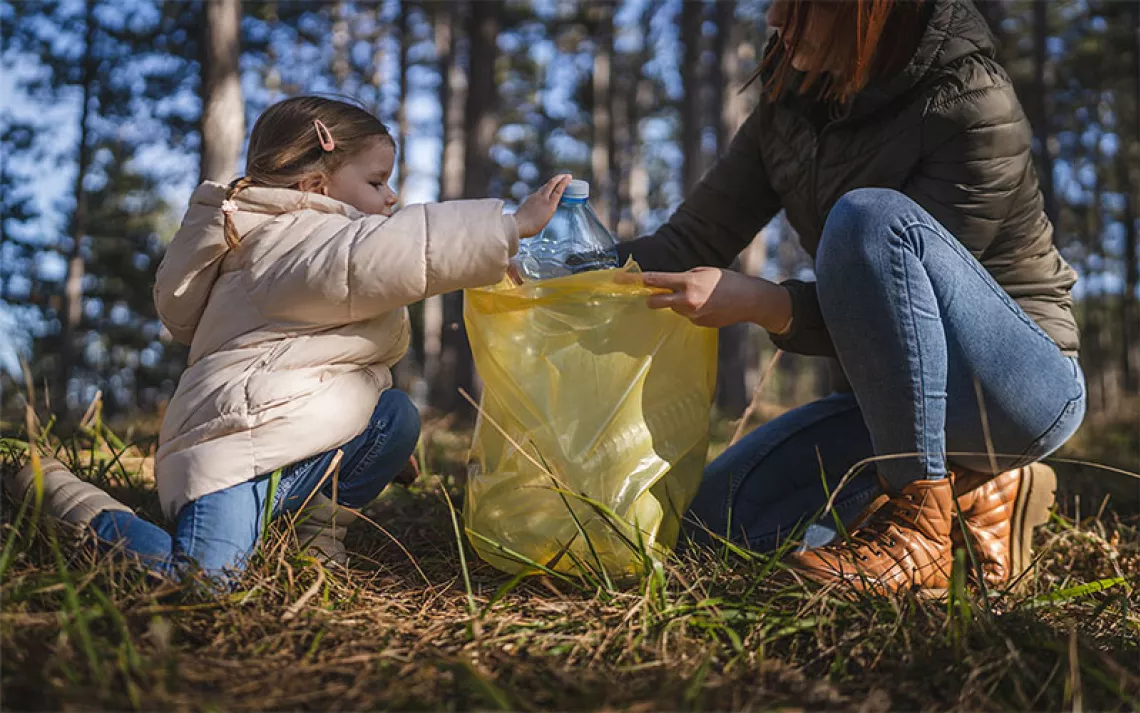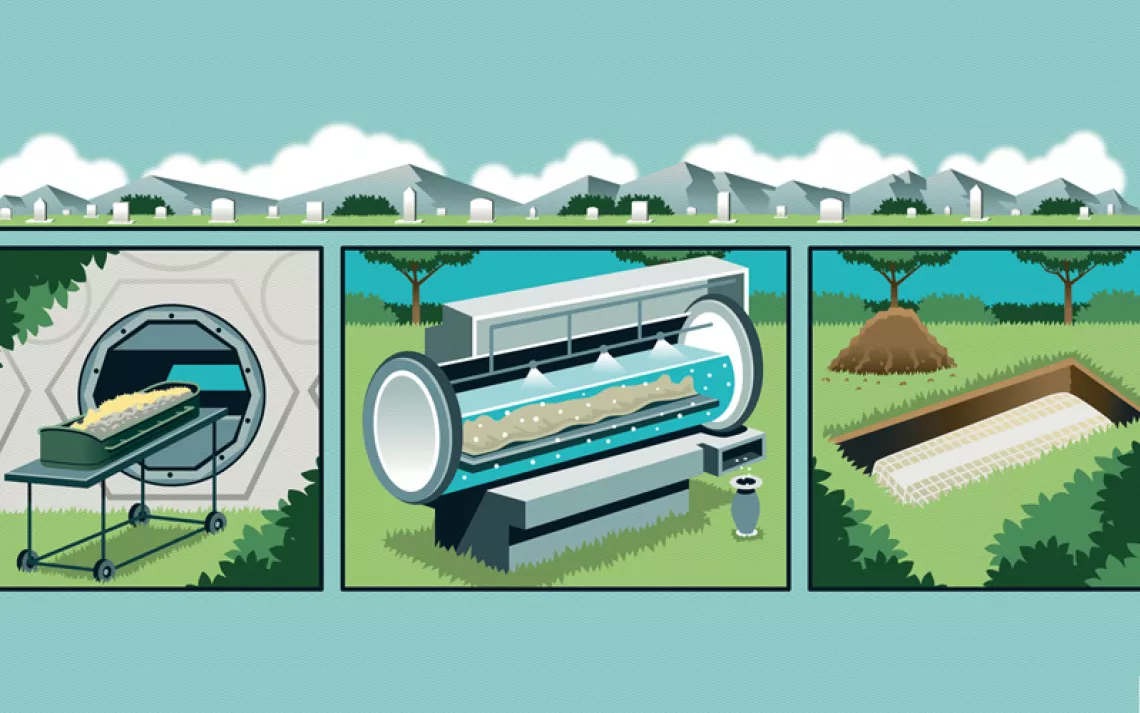Stop Obsessing About Recycling
Recyclability is cool, but it's not always that important

The recycling paradox: Sometimes the environmental impact of an unrecyclable package is far less than that of a recyclable one. | Photo by Kadir van Lohuizen/NOOR
For decades, environmentalists' go-to strategy for discarded consumer goods has been "zero waste"—attempting to recycle everything. A recent study from the Oregon Department of Environmental Quality, however, suggests that our faith in recyclability as a universal good is misplaced.
"Just because something is recyclable does not necessarily mean that it's healthy or has a small footprint," says David Allaway, a senior policy analyst for the Oregon DEQ and coauthor of the counterintuitive report. "Recycling is generally beneficial, but just because something is recyclable or compostable doesn't necessarily make it the lowest-impact choice for the environment."
For example, with disposable packaging, recyclable choices more often than not result in more harm to the environment. "We are spending a lot of time and energy on maximizing recycling," says Allaway, "when in reality we need to be optimizing recycling." To put it another way, we should stop asking whether we can recycle something in favor of whether we should.
Prior to this study, there had been no systematic scientific research into whether the recyclable choice is always the best choice for the environment. The idea makes intuitive sense, it's appealing, and it comes with an obvious strategy for fixing things. But unfortunately, science tells us that recyclability is a crappy indicator of environmental good.
The Oregon report comes at a time of general upheaval in US recycling policy (see "You Can’t Recycle Garbage"). Its implications are causing soul-searching in environmental circles. Oregon is reimagining its entire approach to solid waste and recycling in light of the report. But for others, the study's conclusions—calling into question the fondest zero-waste aspirations of some of our greenest cities—are a large pill to swallow.
Allaway and his colleagues show that some nonrecyclable materials that end up safely sequestered in landfills have a far lower impact on the environment than their recyclable alternatives. In over half the comparisons made between recyclable and nonrecyclable packaging, the nonrecyclable option wins: The recyclable packaging sometimes causes greater overall harm when it comes to climate, water conservation, ecotoxicity, eutrophication, smog, acidification, or other forms of pollution and depletion.
Consider, for example, an unrecyclable laminate pouch containing tuna that ends up in a landfill. Its environmental effects across the board are far lower than those of a highly recyclable steel tuna can made of significant amounts of recycled steel. The pouch requires less energy to manufacture, and its light weight makes it more efficient to transport. Similarly, an unrecyclable Amazon mailing pouch requires fewer resources and less energy than a highly recyclable cardboard box, even if the mailer ends up in a landfill. The same is true of wine packaged in difficult-to-recycle aseptic cartons versus glass bottles.
The Oregon report, a metastudy of hundreds of life-cycle analyses of packaging, containers, food service ware, and compostables, is not a critique of recycling. When done correctly, recycling is almost always beneficial. Packaging that includes recycled materials—metal, plastic, glass, or paper—almost always has a lower footprint than packaging made of virgin material.
"Recycling is good, and we need more recycling and better recycling," Allaway says. "What the data is telling us is that recyclability and compostability are radically insufficient indicators of low environmental impact. What we're seeing here is that these attributes are not enough by themselves to inform good decision-making."
The underlying problem, as Allaway sees it, is that recycling is focused on solving the problem of garbage. But the US garbage problem is very small when compared with the environmental impacts of producing the stuff we throw away. And, he adds, big industry is very satisfied with the current arrangement: As long as everyone is focused on recycling and curbside collection, it's a consumer and government problem. If we shift focus to production, then it's a manufacturer and big-brand problem. "Encouraging people to obsess on recyclability and compostability is a convenient red herring," he says.
Meanwhile, laws are being proposed around the country—like A.B. 1080 in California, which is supported by the Sierra Club—that would ban all single-use plastics, including low-impact laminate pouches.
Instead of mandating recyclable materials that make no environmental or economic sense, Allaway says, we should focus on policies that favor low-environmental-impact choices. Recycling, after all, is a means to a goal, not the goal itself: The prize we should keep our eyes on is protecting the environment and conserving natural resources, not recycling everything at any cost.
This article appeared in the July/August 2019 edition with the headline "When Recycling Isn't Worth It."
Read an interview with David Allaway: sc.org/allaway.
 The Magazine of The Sierra Club
The Magazine of The Sierra Club



